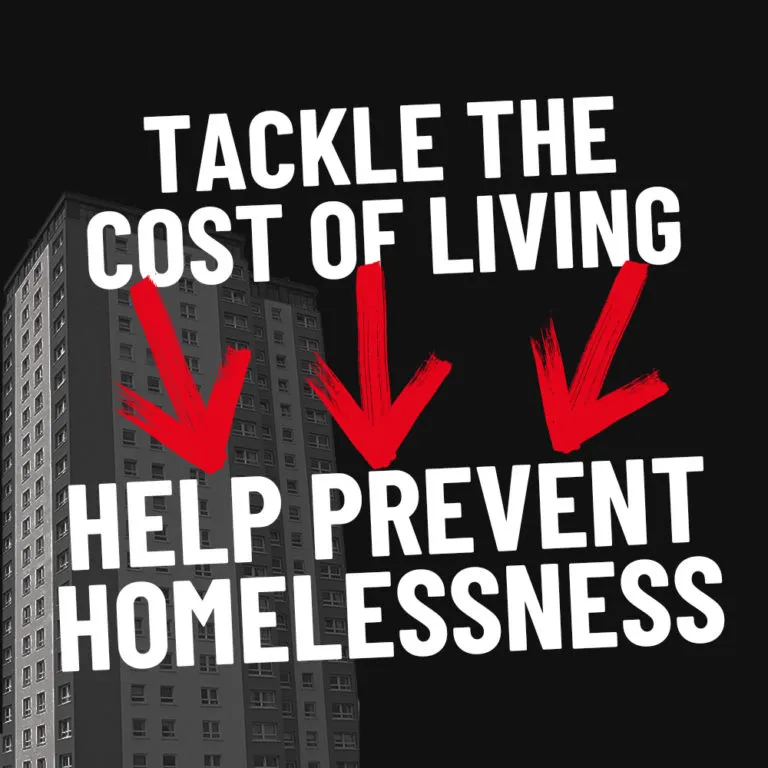Call on MPs to prevent homelessness in the cost of living crisis
Published: by Charlie Berry

New Prime Minister Liz Truss took office in the middle of a crisis which is pushing low-income households across the country to the brink. While the cap on energy prices announced (last week) will be welcome relief to millions, sky high rents mean for low-income renters the crisis goes much deeper than just gas and electricity bills.
That’s why we’re calling on the government to target action at low-income households to prevent a tidal wave of homelessness this winter.
Rising homelessness
Homelessness has risen by 11% in just three months, with big increases in the number of households becoming homeless due to the end of a private tenancy.
Renters are at the sharpest end of the cost of living crisis and are put at risk of homelessness because they have so little to cut back on. Even before the present crisis in 2020, one in four private renters were already living in fuel poverty. 45% of private renters have no savings to fall back on.
Frozen housing benefit, soaring rents
As we’ve shown in previous blogs, housing benefit is failing to provide an adequate safety net against homelessness. Local housing allowance (LHA), which determines the amount claimants receive, has been frozen for two years while rents have spiralled out of control.
Recent research from Crisis and Zoopla has shown that low-income private renters have been priced out of the market by rising rents. Just one in eight adverts for new lettings over the past year were affordable within LHA rates, despite the fact that it is supposed to cover the cheapest 30% of homes.
If low-income renters cannot afford their rent, and cannot find affordable new private lets, then they are placed at serious risk of homelessness.
Benefit cap driving families into poverty
What’s more, the household benefit cap affecting around 120,000 households disproportionately affects single parent families, including women fleeing domestic abuse, and people who have formerly slept on the streets.
The level of the cap has been frozen since 2016, leaving affected households unable to afford a settled home without making impossible cuts to their budgets. Almost all households with children affected by the cap now live in deep poverty.
Earlier this year the Work and Pensions Select Committee called on the government to urgently review the level of the benefit cap, at the latest by the end of 2022.
The government must act
The measures set out so far this year to tackle the cost of living crisis do not address the housing affordability crisis which is driving it.
Additional cost of living payments for benefits claimants announced earlier this year are already dwarfed by both the size of housing benefit shortfalls and subsequent increases in energy costs. And the Household Support Fund, which is used by local councils to give discretionary additional help, faces questions over how effectively it reaches those who need help most.
That’s why we’re calling on Chloe Smith, the new Secretary of State for Work and Pensions, to take urgent action to prevent a tidal wave of homelessness this winter by:
- Restoring housing benefit to cover at least the bottom 30% of local rents, and
- Scrapping the benefit cap